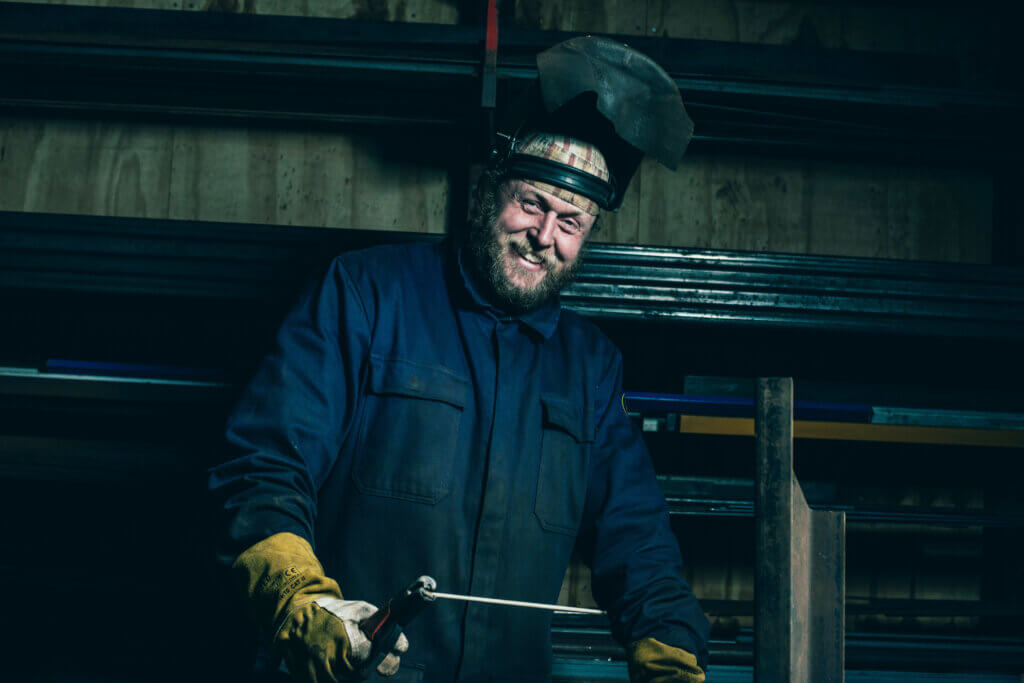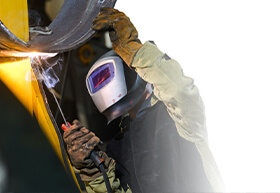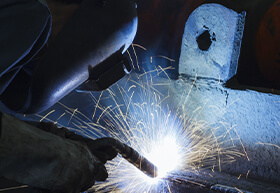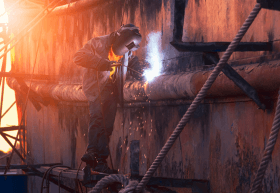Long-Lasting, Hard Working, Incredible Value
By Steve G.
I started with Rockmount about three years ago with little welding knowledge but a lot of desire. After a week of training in Vancouver, I needed to sell this Rockmount stuff. I thought… Now what do I do?
I remember something a previous sales manager told me, “All you need to do is see if you can be of some help.”
My Rockmount sales manager told me of the wonders and magic that is Zeta C hard facing:
It’s great for abrasion, fast deposition, highly efficient (near zero waste), easy out of position application and a lifetime guarantee on the flux.
I ordered up some samples of the three available sizes, 1/4”, 3/8” and 1/2”. Now I keep some 1/4” in my sample case and a rod of 1/2” close at hand. When I call on a potential hard facing customer, I slip that 1/2” stick into my price book and head on in with confidence.
One day, after several visits, I finally hooked up with the welder of the tunneling division of a large national corporation. I had no idea what or how they tunneled but I assumed that they had equipment that bored through the ground. I was correct, which is very rare for me. They used a process called micro tunneling in which they can bore tunnels up to 72” in diameter. Why it’s called “micro”, I have no idea.
These micro tunneling machines have a diameter from 36 to 72 inches. They have a protruding cone head with replaceable carbide bits that are sometimes followed by a cone crusher. The idea is that the unit bores through underground material, crushes the material which is then pumped through exit tubes in the form of slurry. Hard facing can be applied on and around the bits, on the head, and in the cone crusher.

I whipped out my 1/2” Zeta C and said, “Have you ever seen anything like this?” I won’t share his initial response, then I asked a few follow up questions. Do you use hard facing? Do you prefer wire or stick? Is the application flat or out of position? What material do you tunnel through?
After determining that severe abrasion was the environment, I said, “Let’s burn some rod!”
We burned some 1/4” rod based on the need to run out of position and that relatively thin stringer beads serve the hard facing needs best. The demo went great and I sold 11 lbs, along with a spool of Polaris Maximum Shield flux core wire for some of the carbon steel cracking problems he had.
When I returned in three months the welder couldn’t stop singing the praises of Zeta C!
He explained to me that once one of these micro tunneling units starts a job they don’t stop. Often when boring a long tunnel or when going through particularly hard material, all of the previous hard facing material he was using would wear off and destroy the base metal.
Where he used Zeta C, the hard facing had hardly worn.
I actually helped a customer! He has since purchased several hundred pounds of Zeta C and has saved his business a lot of time and money in the process.
He has since purchased several hundred pounds of Zeta C and has saved his business a lot of time and money in the process.
Let’s breakdown the savings:
The three most important aspects of hard facing alloys are:
Recovery Rate (efficiency) – How much of the welding material you purchased and burned actually ends up on the base metal. Standard welding materials recover at 60% the weight of the rod, which means that for every 100 lbs. you buy and burn, only 60 lbs. ends up on the base metal. 40 lbs. of product are wasted and hours of time are lost. That’s a lousy equation no matter how you think of it. Zeta C has a 96% recovery rate.
Deposition Rate: How quickly can the hard facing material be deposited. It’s your time that is the most expensive part of this repair. Standard hard facing products have a deposition rate of 5 lbs per hour at best. Zeta C easily deposits at 10 lbs per hour.
First Pass Hardness: The hardness of the first pass dictates whether another pass of hard facing is needed. Fewer passes equate to less labor time and less downtime for the machine. Standard hard facing products have a first pass hardness of 47-52 RC. Zeta has an exceptional first pass hardness of 62 RC.
The cost of actually doing the hardfacing, like the cost of any maintenance repair, is the biggest cost, not the product.
Let’s assume you have a 10 lb job.
Using a comparable standard hard facing product:
- Cost of material: 10 lbs at ~$15/lb = $150
- Deposition rate: 5 lb / hr
- Labor 2hrs @ $30/hr = $60
- Recovery rate: ~60%
Total cost $210 and 2 hours of labor.
Using Zeta C:
Thanks to the 98% recovery rate of Zeta C, a 10 lb job with standard products will only require 7 lbs of Rockmount product.
- Cost of material: 7 lbs at ~$38/lb = $266
- Deposition rate: 10 lb / hr
- Labor 45 minutes @ $30/hr = $23
Total Cost $289 and 45 minutes labor.
At first glance the standard product might look cheaper, but the equation continues.
Zeta C has a first pass hardness of 62 RC compared to a first pass hardness of 47-52 RC for comparable standard products. To get to the same hardness with standard materials you will need to make 2-3 passes. Therefore, you’d have to repeat the application, and double your costs. Which means the standard product would now be $420 and four hours of labor.
Then, most importantly, we have to address the amount of wear.
In Steve’s story, the customer shared that at the end of a tunneling job the hard facing would be completely worn down and some of the base metal would be destroyed. That would have meant huge costs to restore the machine after every job.
With Zeta C, the hard facing was barely worn and the base metal was well protected meaning that the equipment doesn’t need to be rebuilt and the machine can move quickly to the next job. This translates to thousands of dollars in savings over the life of the equipment.
This translates to thousands of dollars in savings over the life of the equipment.
If you want to see for yourself then give us a call and we’ll help you run a test against whatever you’re currently using.





